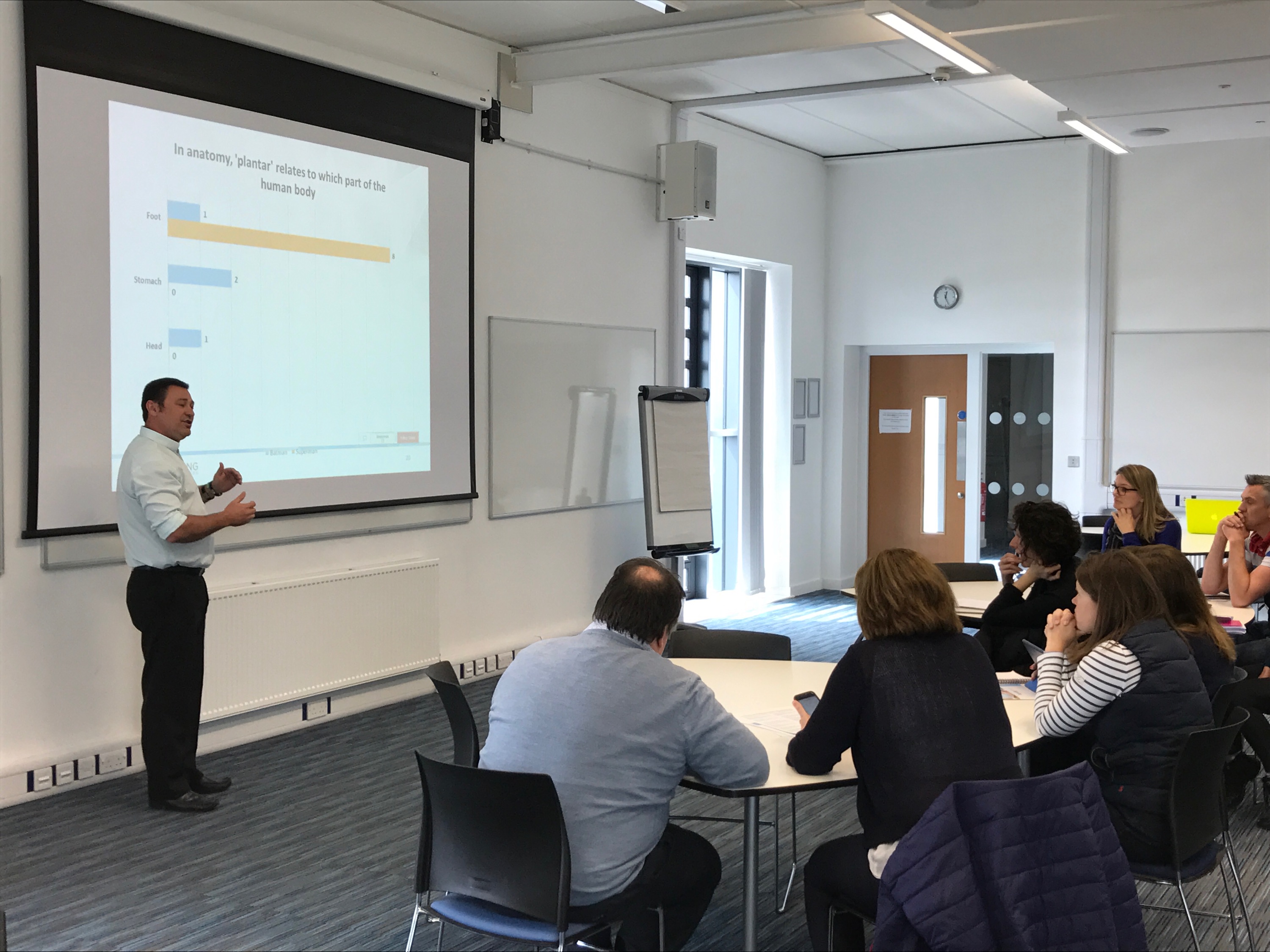Dr Momna Hejmadi, Department of Biology & Biochemistry, gave a presentation on the topic of using multiple choice questions (MCQs) in Moodle for summative assessment, with many tips and points to consider. Momna's experience comes from having been involved with a TDF project to investigate the use of Moodle quizzes for assessment across multiple departments.
Watch a full recording of the event (27 minutes plus discussion)
The main drivers for moving towards using Moodle MCQs for asssessment were:
- NSS/PTES scores
- Students prefer timely feedback rather than quality feedback#1
- Increasing student numbers (349 cohort in 2015/16)
- Time pressures on staff in enhancing research metrics
- Selective/Strategic learning in years 1 and 2.
The first year in which Momna trailed this new system ran smoothly, however the second year with an even further increased cohort size did not. At this point the contingency plan was used, which is why Momna stressed that involving AV, registry and e-learning at all stages of design and implementation was necessary.
If you are interesting in using MCQs in your teaching, read the case study on using Peerwise which allows students to create and answer their own MCQs across the cohort.
Key questions in the discussion afterwards
Do you need any plugins for this to work?
No, this was all out of the box from Moodle, plugins do exist for equations, and e-learning will be able to help with this.
This case study was for an end of year exam involving registry, how would you run this as a mid-semester exam?
Although registry may not get involved to book computer rooms, you would need to contact e-learning initially to see how best to complete this.
Essays help to crystallise thoughts and assess communication skills, are these now not assessed?
The cohort still has essays to complete, hhe essential skill sets are in other units, but spread through smaller units so marking is easier. We certainly would not use MCQs for final year assessments.
If more units were to undertake this type of assessment, how could we cope with current resources?
You would have to involve registry from an early stage who can deal with room bookings to ensure there are resources allocated for this. The University of Glasgow has rented out devices for a similar problem, and this allowed for a much larger scale operation. Another option could be bring your own device, however we need to investigate failures and differences between devices to ensure that it is a fair method of assessment. There may be a TDF project later this year investigating this. By trailing new methods like this we can ensure the University continues to move forwards.
Were there any complains from students relating to missing out on exam time due to waiting for pages on Moodle to load?
Students did not complain about this style of assessment, and nothing to do with Moodle. We did let all students know that a contingency plan was in place to ensure there was no additional stress and to inform the students that their marks would not be affected if the technology broke.
- L. Bayerlein (2014), Students’ feedback preferences: how do students react to timely and automatically generated assessment feedback?, Assessment & Evaluation in Higher Education. Vol 39 (8)
Respond



